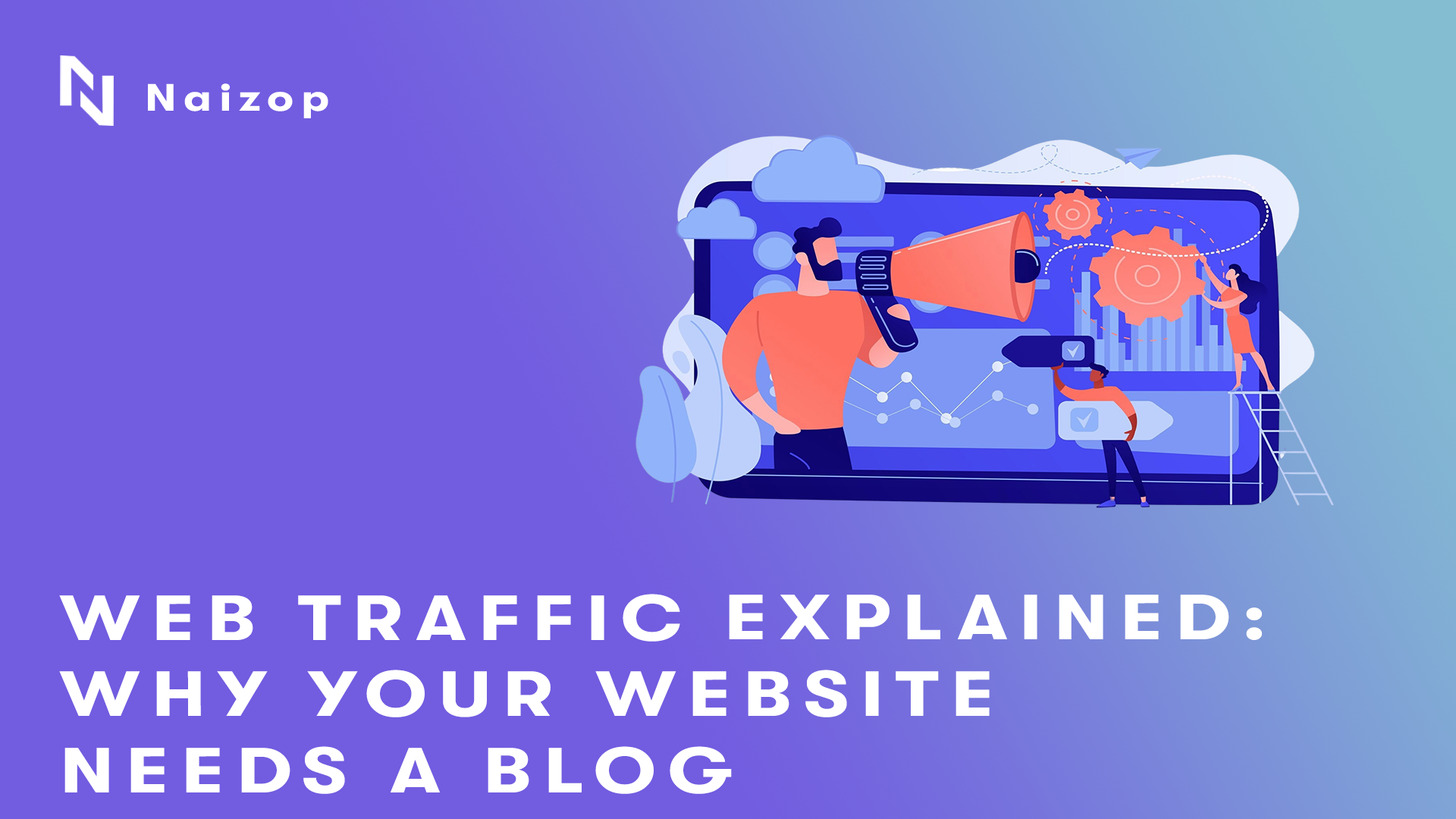🎄 Christmas Mega Bonus | Up to 60% Deposit Bonuses Live Now 🎁
🎄 Christmas Mega Bonus 🎁
🎄 Christmas Mega Bonus | Up to 60% Deposit Bonuses Live Now 🎁
🎄 Christmas Mega Bonus 🎁
All Services
Instagram
TikTok
YouTube
Twitter
Facebook
Threads
Snapchat
Telegram
Discord
Reddit
Quora
Spotify
SoundCloud
Twitch
![]() Kick
Kick
![]() Rumble
Rumble
Podcast
LinkedIn
OnlyFans
Pinterest
Reviews
SMM Panel Pages
Growth Services
Bot Services
Report Bot Services
Others
All Services
Instagram
TikTok
YouTube
Twitter
Facebook
Threads
Snapchat
Telegram
Discord
Reddit
Quora
Spotify
SoundCloud
Twitch
![]() Kick
Kick
![]() Rumble
Rumble
Podcast
LinkedIn
OnlyFans
Pinterest
Reviews
SMM Panel Pages
Growth Services
Bot Services
Report Bot Services
Others


Noah Blake
Last Update: May 8, 2025In the digital landscape, content is king, as Bill Gates predicted in 1996. Today, with over 500 million blog sites worldwide, it's clear that blogs play a crucial role in driving traffic to a website and boosting business success.
Blogs have evolved into powerful tools for businesses, enhancing their online presence and credibility. In fact, 68.52% of bloggers agree that blogs help add credibility to a website, showcasing their expertise. By incorporating a blog into their digital strategy, businesses can increase their online visibility, generate leads, and drive conversions.

Understanding web traffic is crucial for any online business. Web traffic refers to the number of visitors and the number of pages they view on your website. It's a key indicator of your online presence and can significantly impact your business's success.
Web traffic can be categorized into different types, including organic, direct, referral, and social traffic. Organic traffic comes from search engines like Google, where users find your site through a search query. Direct traffic refers to visitors who directly type your website's URL into their browser. Referral traffic comes from other websites that link back to your site, while social traffic originates from social media platforms.
Each type of traffic matters for business success. For instance, organic traffic indicates that your content is relevant and visible to your target audience. Referral traffic shows that other reputable sites are endorsing your content.
The quality and quantity of your content directly impact your website's visibility. Search engines like Google evaluate and rank content based on its relevance, quality, and user experience. Regularly updating your blog with high-quality content signals to search engines that your site is active and relevant.
A well-maintained blog can improve your search engine rankings, driving more organic traffic to your site. By creating content that resonates with your audience, you can increase your website's visibility and attract more visitors.
A blog can significantly transform your website's performance by improving key metrics such as page views, time on site, bounce rate, and conversion rates. By publishing relevant and engaging content, you can attract more visitors and encourage them to stay longer on your site.
|
Metric |
Without Blog |
With Blog |
|
Page Views |
1000 |
5000 |
|
Time on Site |
1 minute |
3 minutes |
|
Bounce Rate |
70% |
40% |
|
Conversion Rates |
2% |
5% |
By understanding web traffic and leveraging the power of a blog, you can improve your website's overall performance and achieve your business goals.
In today's digital landscape, a blog is no longer a luxury, but a necessity for businesses to establish a strong online presence. A well-crafted blog can drive qualified traffic to your website, improve your search engine rankings, and position your business as an authority in your industry.
A blog enables you to create targeted content that addresses specific user queries and needs, driving qualified traffic to your website. By incorporating relevant keywords and phrases, you can increase the visibility of your website and attract potential customers.
For instance, a company that sells outdoor gear can create blog posts about hiking trails, camping tips, and gear reviews, attracting enthusiasts who are likely to purchase their products. This targeted approach not only drives traffic but also increases the chances of converting visitors into customers.
Search engines use algorithms to rank search engine results by their relevance to a particular search query. By regularly publishing fresh and relevant content on your blog, you can improve your search engine rankings and increase your online visibility.
Keyword optimization: By incorporating relevant keywords and phrases into your blog posts, you can improve your search engine rankings.
Fresh content signals: Regularly publishing new content on your blog sends signals to search engines that your website is active and deserves crawling more frequently.
Increased indexable pages: Each new blog post creates a new indexable page on your website, increasing the chances of attracting organic traffic.

Consistently publishing valuable content on your blog positions your business as an authority in your industry. By sharing your expertise and providing insights, you can build trust with potential customers and establish your brand as a thought leader.
A blog enables you to build trust with potential customers by demonstrating your expertise, providing value before asking for a sale, and creating a brand voice. By sharing your knowledge and experiences, you can establish a connection with your audience and increase the chances of converting them into customers.
Blog content creates long-term assets that continue to drive traffic and leads for years, unlike paid advertising that stops working when you stop paying. By creating evergreen content, you can enjoy sustained benefits from your blog efforts.
Compared to other marketing strategies, blog-based content marketing is one of the most cost-effective approaches for sustainable business growth. By creating and repurposing content, you can maximize your ROI and achieve long-term results.
In conclusion, having a blog on your website is crucial for driving qualified traffic, improving search engine rankings, establishing authority, building trust, creating long-term assets, and implementing a cost-effective marketing strategy.
To maximize your online presence, it's essential to understand how blogging supports your overall digital marketing efforts. A well-integrated blog can serve as a content hub, fueling various marketing channels and creating a cohesive strategy.
Blogging offers quality content for social media platforms. By repurposing blog content, you can create engaging posts for different social channels. For instance, a detailed blog post can be transformed into a series of tweets, an Instagram caption, or a Facebook update.

Blogs enhance email marketing campaigns by providing valuable content to share with subscribers. This not only increases open rates but also gives subscribers a reason to engage with your brand between purchases.
The relationship between blogging and SEO is symbiotic. Each strengthens the other through keyword targeting, internal linking, and content freshness signals. By incorporating relevant keywords into your blog posts, you can improve your search engine rankings.
|
Marketing Channel |
Blogging Benefit |
Example |
|
Social Media |
Repurposing content |
Transforming a blog post into a series of social media posts |
|
Email Marketing |
Increasing engagement |
Sharing blog posts in email newsletters to boost open rates |
|
SEO |
Improving search engine rankings |
Using keywords in blog posts to enhance visibility |
By integrating blogging into your digital marketing strategy, you can create a cohesive and effective approach to reaching your target audience.
To drive real results from your blog, you need to create content that resonates with your target audience. This involves understanding who your audience is, what they're interested in, and how they interact with your blog.
Understanding your target audience is crucial for creating effective content. You can achieve this by developing buyer personas, conducting customer interviews, and analyzing content performance using analytics data. This helps you create content that speaks directly to their needs and interests.
Researching relevant topics and keywords is essential for creating content that drives traffic to your blog. Use tools like keyword research software to identify high-value content opportunities and understand what's currently trending in your industry.
A content calendar helps you plan and organize your blog posts in advance, ensuring consistency and alignment with your business goals. When developing your calendar, consider the frequency and consistency of your posts.
Planning the frequency and consistency of your blog posts is vital for maintaining audience engagement. The optimal posting schedule varies by industry and business type, so it's essential to experiment and find what works best for you.
Balancing evergreen content, which provides long-term value, with trending topics, which can drive short-term traffic spikes, is key to a successful content strategy. Evergreen content remains relevant over time, continuing to attract traffic long after it's been published.
By following these strategies, you can create a blog that drives real results and supports your overall digital marketing efforts.
To maximize the impact of your blog, it's essential to follow best practices that enhance both reader engagement and search engine optimization. Effective blogging involves several key strategies that work together to create a compelling and visible online presence.
Crafting headlines that capture attention and drive clicks is crucial. Using proven formulas and examples can help you create headlines that work across industries. For instance, incorporating numbers, questions, or statements that create curiosity can significantly enhance click-through rates.
Incorporating visual elements such as images, infographics, videos, and charts can enhance comprehension, increase engagement, and make your content more shareable. Visuals help break up the text on the page, making your blog posts more enjoyable to read.
The length and structure of your content can significantly affect its performance. Understanding the optimal content length for different purposes and how it impacts rankings and engagement is crucial. Generally, well-structured, longer-form content tends to perform better in search engine rankings.
Including relevant internal and external links can improve SEO, enhance user experience, and build credibility. For example, linking to external sources like studies or statistics can add weight to your topic, as seen in HubSpot's guide on blog search engine. This practice not only supports your arguments but also contributes to a more authoritative blog.
By following these best practices, you can significantly enhance the impact of your blog.
Understanding your blog's performance is key to refining your content strategy and achieving better results. To do this, you need to track the right metrics and use analytics tools effectively.
To measure your blog's performance, focus on the following key metrics:
Traffic metrics: page views, unique visitors, and bounce rate
Engagement metrics: time on page, comments, and social shares
Conversion metrics: email sign-ups, contact form submissions, and sales
These metrics will give you insights into how your blog is performing and where you need to improve.
Google Analytics is a powerful tool that provides insights into your blog's traffic, engagement, and conversion rates. To get the most out of it, set up goals and track your posts' performance regularly.
You can also use other free and paid analytics tools to supplement your analysis and gain a more comprehensive understanding of your blog's performance.
Once you have collected data on your blog's performance, use it to refine your content strategy. Identify the types of posts that resonate with your audience and double down on those approaches.
Conversely, if certain topics or formats aren't performing well, be prepared to pivot and adjust your strategy accordingly.
By regularly monitoring your blog's performance and adjusting your strategy based on data, you can optimize your content for maximum impact and achieve better results over time.
Launching a successful blog requires careful planning and execution. To get started, you need to make informed decisions about your blogging platform, content strategy, and goals.
Selecting the right platform is crucial for your blog's success. Popular options include WordPress, Medium, and HubSpot. When choosing a platform, consider your technical capabilities and business needs. For instance, WordPress offers free themes to help you integrate images seamlessly.
A well-planned content strategy is essential for driving results. Identify your target audience, core topics, and content types to create a cohesive plan. This will help you establish yourself as an authority in your area and attract relevant backlinks to your content.
Setting goals and expectations is vital for measuring your blog's performance. Be realistic about the time it takes to see results and benchmark your first-year performance. Platforms like Naizop, which offer web traffic services, can help accelerate your results.
If needed, consider getting professional support for your blogging efforts, from content creation to promotion to technical setup. This can help you overcome common challenges and achieve your goals.
In today's digital landscape, a well-crafted blog is no longer a luxury, but a necessity for businesses aiming to thrive online.
By combining content creation with SEO, you're taking significant steps towards online success. A blog drives traffic, builds authority, and generates leads, ultimately contributing to business growth.
To achieve these results, focus on creating consistent, quality content and track key metrics to adjust your strategy. With a well-planned blogging approach, you can transform your website into a lead-generating machine.
Start your blogging journey today and reap the rewards of a successful online presence.
To attract customers, focus on creating high-quality, relevant, and informative content that addresses the needs and interests of target audience. This can include industry insights, product reviews, tutorials, and more.
The frequency of posting new content depends on business goals and audience engagement. However, a consistent schedule, such as weekly or bi-weekly, can help maintain reader interest and improve search engine rankings.
Yes, blogging is a great way to improve SEO by providing fresh, keyword-rich content that search engines can index. This can increase visibility, drive organic traffic, and boost online presence.
To measure the success of your blog, track key metrics such as page views, engagement rates, and conversion rates. Use analytics tools like Google Analytics to gain insights into your blog's performance and adjust your content strategy accordingly.
Effective ways to promote your blog include social media marketing, email marketing, and collaborating with influencers. Share your content on relevant platforms, and consider paid advertising to reach a wider audience.
To ensure your blog is mobile-friendly, use a responsive design that adapts to different screen sizes and devices. Test your blog on various devices to ensure a smooth user experience and make necessary adjustments to improve usability.
Yes, a well-written and informative blog can help establish authority and build trust with potential customers. Share customer testimonials, case studies, and industry insights to demonstrate your expertise and showcase your brand's value.
To optimize your blog posts for search engines, use relevant keywords, meta descriptions, and header tags. Also, ensure your content is high-quality, engaging, and provides value to your readers.
Blogs are essential for driving traffic to a website and boosting business success.
Content is a critical component of a successful digital marketing strategy.
Blogs help establish a company's credibility and expertise in their field.
A well-managed blog can increase online visibility and generate leads.

Written By:
Noah Blake
AUTHOR & EDITOR-IN-CHIEF

In this article